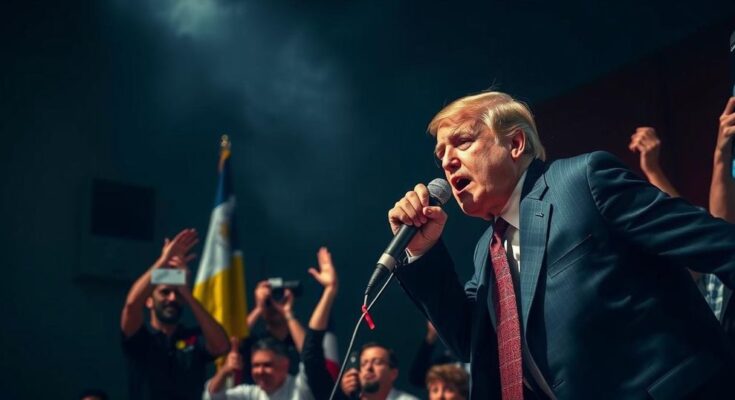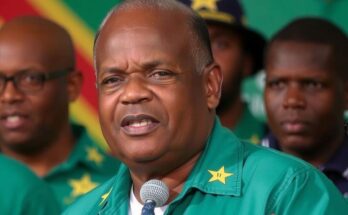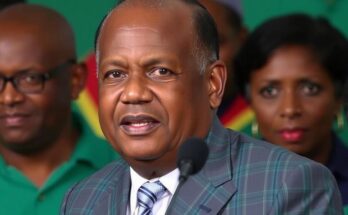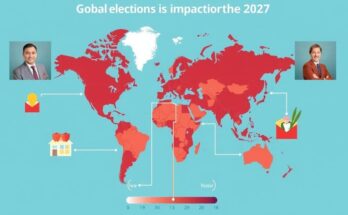Uruguay is set for a critical second-round presidential election featuring Yamandu Orsi of the Broad Front against conservatively aligned Alvaro Delgado. With final opinion polls predicting a tight race and both candidates vying for undecided voters, the election embodies Uruguay’s relative political serenity compared to neighboring countries. Polls open at 8 a.m. local time, and results are anticipated shortly afterwards, reflecting the public’s response to ongoing economic challenges.
In Montevideo, Uruguay, voters prepare to cast their ballots in a crucial second-round presidential election. This contest occurs between two centrist candidates: Yamandu Orsi from the opposition Broad Front and the incumbent-aligned Alvaro Delgado, who represents a continuity conservative approach. Polls indicate that the election could be exceptionally close, potentially decided by a mere 25,000 votes. With the political landscape in Uruguay characterized by a lack of severe polarization unlike neighboring countries, the outcome may reflect the return to steady governance rather than radical change. As ballot stations open early on a Sunday and results are expected later in the evening, both candidates aim to secure the support of undecided voters who previously backed smaller parties or did not vote at all in the initial round.
Uruguay, a small South American nation with a population of approximately 3.4 million, is known for its peaceful atmosphere and progressive policies, such as the legalization of marijuana. This election marks a culmination of a significant year in politics for the region, with major elections occurring across countries including Argentina, Brazil, and Mexico. Despite global trends showing voters’ frustration with incumbent parties due to economic distress, Uruguay appears to maintain a unique political climate where both conservative and liberal ideologies might coexist harmoniously. This backdrop provides a more tranquil electoral environment, enabling a less contentious race compared to other countries in the region.
As the electorate in Uruguay engages in this pivotal electoral process, the focus remains on whether incumbent-affiliated candidates can maintain their grip on power in light of global political shifts. Both Yamandu Orsi and Alvaro Delgado are eager to appeal to the undecided voters as they seek to navigate a political landscape that is expected to favor stability over drastic change. The decision ultimately rests with the voters, who will express their preferences amidst a uniquely mild and cooperative political backdrop in the nation.
Original Source: www.ndtv.com




